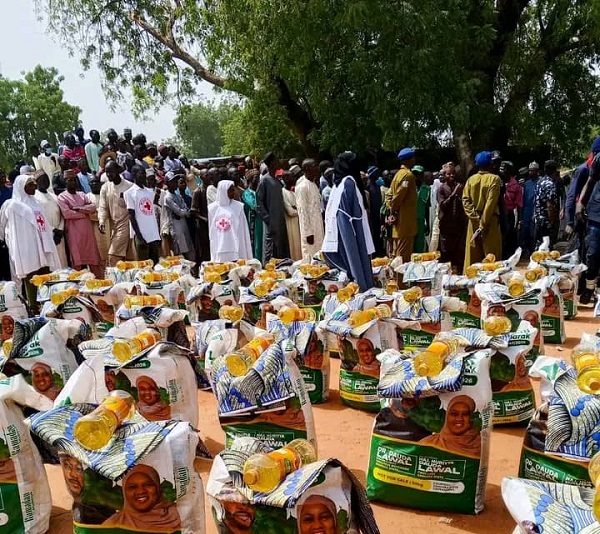Why Food Prices Remain Stable
Many Nigerians have not stopped to ask themselves why food prices have remained stable despite the devaluation of the naira. The naira now exchanges for about N200+ to a dollar, yet the price of rice, which used to be an imported Nigerian staple has remained stable, ditto for wheat and other imported food items.
How come?
The Agric minister, Dr Akinwunmi Adeshina, told the story in a lucid, poetic and romantic manner at the recently held Raw Materials Clusters Summit in Abuja. He said despite the changes in the value of the naira, food prices have remained relatively stable due to increased food production and the substantially reduced import bill.
“Government launched the Growth Enhancement Support scheme to provide targeted support for seeds and fertilizers to 20 million farmers within four years…The production from these supports exceeded 21million metric tons of additional food,” he explained.
The minister added that in rice, 24 large integrated private sector rice mills have sprung up with a total capacity of 800,000 metric tons. Said he: “The quality challenges of local rice have been overcome by these modern mills with products comparable to imported milled rice, Aliko Dangote is investing $1billion in 450,000 ha of rice fields and five rice mills with combined capacity of 1million metric tons.”
Another glad tiding was that of the successes recorded in the bid to reduce the huge wheat import bill of N654 billion ($4 billion) a year by partially replacing wheat in bread and confectionaries with High Quality Cassava Flour with the launch of 20% cassava bread by four large industrial bakeries and four master bakers in 2012; and which increased to eight industrial bakers and 40 master bakers in 2014. Nigeria’s two largest wheat millers, Honeywell and Flour Mills of Nigeria who together account for 70% of total flour milling capacity in Nigeria have launched commercial 10% HQCF composite flour.
Need we say more?
That is the good part of the story.
The sad part is that no single Nigerian process equipment fabricator was involved in the installation of the 24 large scale rice mills. And the fabricators are not happy with the (turnkey?) arrangement the government had with the manufacturers. One of them swore that the initial arrangement was for the government to import only a few units for the fabricators to study and partake in their installations so that eventually there would be no need to import more units, rather the remaining units would be made locally.
The minister probably didn’t really see the need for the involvement of the local fabricators and regarded it as a waste of time, something which could rob the Jonathan Administration of the well-deserved honour of being the government that took Nigeria from being a food importer to food exporter. But did the minister think of after-sales maintenance? Was there any solid arrangement to ensure that Nigerians would be able to handle the maintenance and repairs, just in case the mills break down? Or are we going to keep on importing expertise to do the repairs each time there is a need for such? Is there any arrangement at technology transfer from the manufacturers to Nigeria, such that Nigerians could manufacture the mills wholly in the nearest future? These questions earnestly beg for answers!








